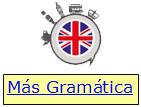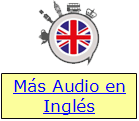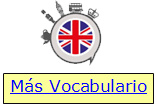Grammar: COULD is related to CAN.
Both are modal verbs. Could is the past of can and the conditional.
Could = podría OR podía (could is both the CONDITIONAL and THE PAST of
CAN).

If I won the lottery. I would buy a big house.
(could in the conditional = would + be able) “If I won the lottery, I
could (would be able to) buy many things. (Craig and Reza speak about
conditional sentences in Episode 11
If you could change a law or introduce a new law, what law would you
change or introduce?
Craig WOULD introduce a 4-day working week. That way he COULD have a 3-day
weekend.
Use COULD and COULDN’T for ability in the past
Could and couldn’t are the past forms of can and can’t (for ability):
When Reza was a child he could run very fast. Now he can’t!
When Craig lived in London, he could drive on the left.
In the UK we couldn’t sit outside in Novenber and drink coffee. It was
too cold!
Use COULD for possibilities in the future: We could go out for a beer
tonight if you feel like it.
Use COULD (and WOULD) to make polite requests:
Could/Would you please sit nearer to the microphone?
Could/Would you pass me the salt, please?
Could and would are also used in reported speech.
“I WILL see you tomorrow”, said Reza.
Reza said that he WOULD see me tomorrow.
“CAN you lend me 50 euros?”
Craig asked if Reza COULD lend him 50 euros.
Reza is afraid that he couldn’t (can’t) lend Craig any money!
Past tenses and forms are often more polite:
I was wondering….
Could you…”podría usted…”
Would you…
Would you like a cup of tea? Would you like a biscuit? (Polite offer)
Remember not to put “to” after modal verbs like ‘could’, ‘would’, ‘should’,
‘may’, ‘might’, ‘must’ etc.
1) It’s impossible for me not to laugh when he starts singing. – I can´t
HELP LAUGHING when he starts singing.
I can´t HELP LAUGHING when he starts singing (No puedo evitar reírme
cuando empieza a cantar)
Craig can’t help eating chocolate when it’s in front of him.
2) I really don’t want to go out this evening. – I really don’t FEEL
LIKE GOING out this evening.
I really don’t FEEL LIKE GOING out this evening. (Realmente no me
apetece salir esta noche)
Reza doesn’t feel like doing all the corrections that he has to do.
Craig doesn’t feel like working this afternoon.
3) It’s obvious he shot himself in the foot by accident.- He obviously
DIDN’T MEAN TO SHOOT himself in the foot.
He obviously DIDN’T MEAN TO SHOOT himself in the foot. (Obviamente, él
no tenía intención de pegarse un tiro en el pie.)
Can’t help doing something (gerund)
I don’t feel like doing something (gerund)
I didn’t mean to do something (infinitive)
Pronunciation:
biscuit – Craig and Reza both love biscuits
minute (noun) I’ll be there in a minute / minute (adjective) A minute
particle (a very small particle)
cut (up, bus, uncle)
laugh (car, far)
VEGetables (3 syllables – the first syllable is stressed)
Vocabulary: Home – In the Garden
césped – lawn (to mow the lawn / to cut
the grass)
banco – bench
camino/sendero – path
carretilla – wheelbarrow
cobertizo – shed
estanque – pond
fuente – fountain
invernadero – greenhouse/Hothouse
malas hierbas – weeds
manguera – hosepipe
pala – spade, shovel
carbonera – coal bunker
cavar – to dig (the garden, the weeds)
seto – hedge (hedge fund – fondo de cobertura)
 *Dispones
de más
PODCAST en inglés publicados en los cuadernos anteriores *Dispones
de más
PODCAST en inglés publicados en los cuadernos anteriores
a los que puedes acceder directamente así como al índice de su
contenido. |
|
|



 *Dispones
de más
*Dispones
de más


